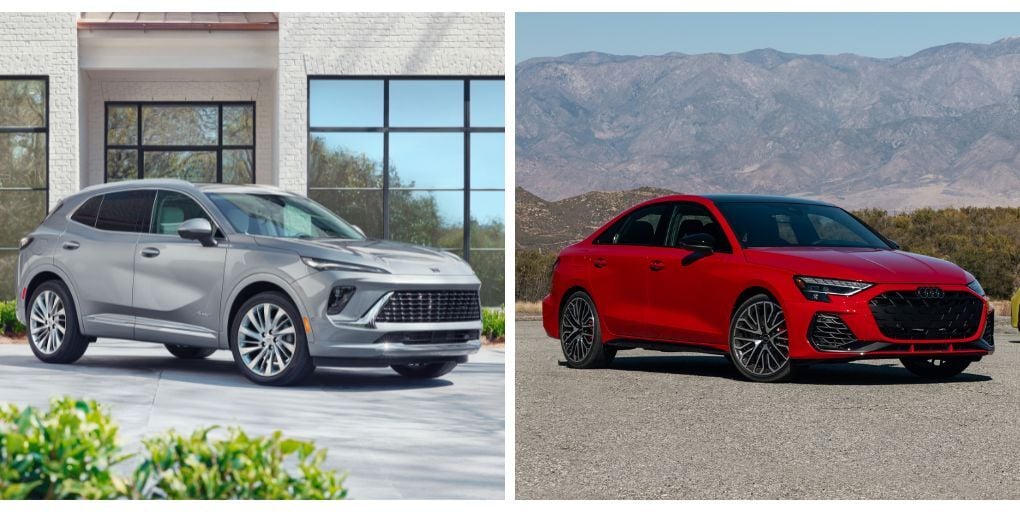Headlines that caught my attention on the subject of tariffs & vehicles:
- Audi of America is raising prices across most of its 2026 lineup as it contends with steep U.S. tariffs on imported vehicles, with increases ranging from $800 on the Q4 E-tron to $4,700 on the S8 sedan. The A3 compact sedan now starts at $41,395, up $1,900, while the Q7 and Q8 crossovers rise to $63,295 and $76,895, respectively. Lower-volume performance models like the RS 6 Avant and RS 7 see hikes of $4,100. Audi, which builds nearly all U.S. models in Europe, faces tariffs of 27.5 percent that could be reduced under a pending trade pact. The brand, struggling with six straight quarters of declining U.S. sales, is adding free scheduled maintenance for three years or 30,000 miles on all 2026 models as part of the price increases, which also account for minor equipment upgrades.
- General Motors has raised sticker prices on the 2025 Buick Envision by about $2,000 across the board, combining a $1,500 bump in MSRP with a $500 increase in destination fees, bringing the all-wheel-drive compact crossover’s starting price to $39,895 for the Preferred trim, $42,395 for Sport Touring and $49,595 for the Avenir, all now including remote start as standard. The hikes coincide with U.S.–China tariff tensions that particularly threaten the China-built Envision, which analysts warn could erode Buick’s recent sales gains. Aside from the price revision, model-year 2025 remains mechanically unchanged, with a new white paint option but otherwise minimal updates.
- The United States and the European Union have unveiled concrete details of their recently agreed trade framework. U.S. tariffs on most EU imports—including automobiles—are set to be trimmed to 15%, down from 27.5%, once the EU enacts its own tariff reductions as part of the deal. The EU is moving to apply lower U.S. tariffs retroactively from August 1, signaling urgency in implementation, and industry group ACEA describes the 15% tariff confirmation as a "positive step" that injects much-needed clarity—while urging the Commission to act swiftly.
- As a gesture to restart stalled trade talks, Canada will lift its 25% retaliatory tariffs on U.S. goods that comply with USMCA, effective September 1. However, tariffs on steel, aluminum, and automobiles remain intact. Critics caution this may do little to restore meaningful leverage.
- New tariff pressures are starting to push car prices upward across the board. Automakers—who have absorbed much of the cost so far—now plan to start passing some of it onto consumers beginning with their 2026 model rollout this fall. Analysts predict new car prices could jump around 6.3% in 2026.
- In July, U.S. retail sales rose 0.5%, buoyed by a 1.6% rebound in auto sales—suggesting consumers rushed their purchases ahead of anticipated tariff-driven price hikes. While inflation continued to rise modestly (0.2% monthly, 2.7% annually), some firms like Walmart and Procter & Gamble have selectively raised prices to offset costs.

c6f9.jpg)